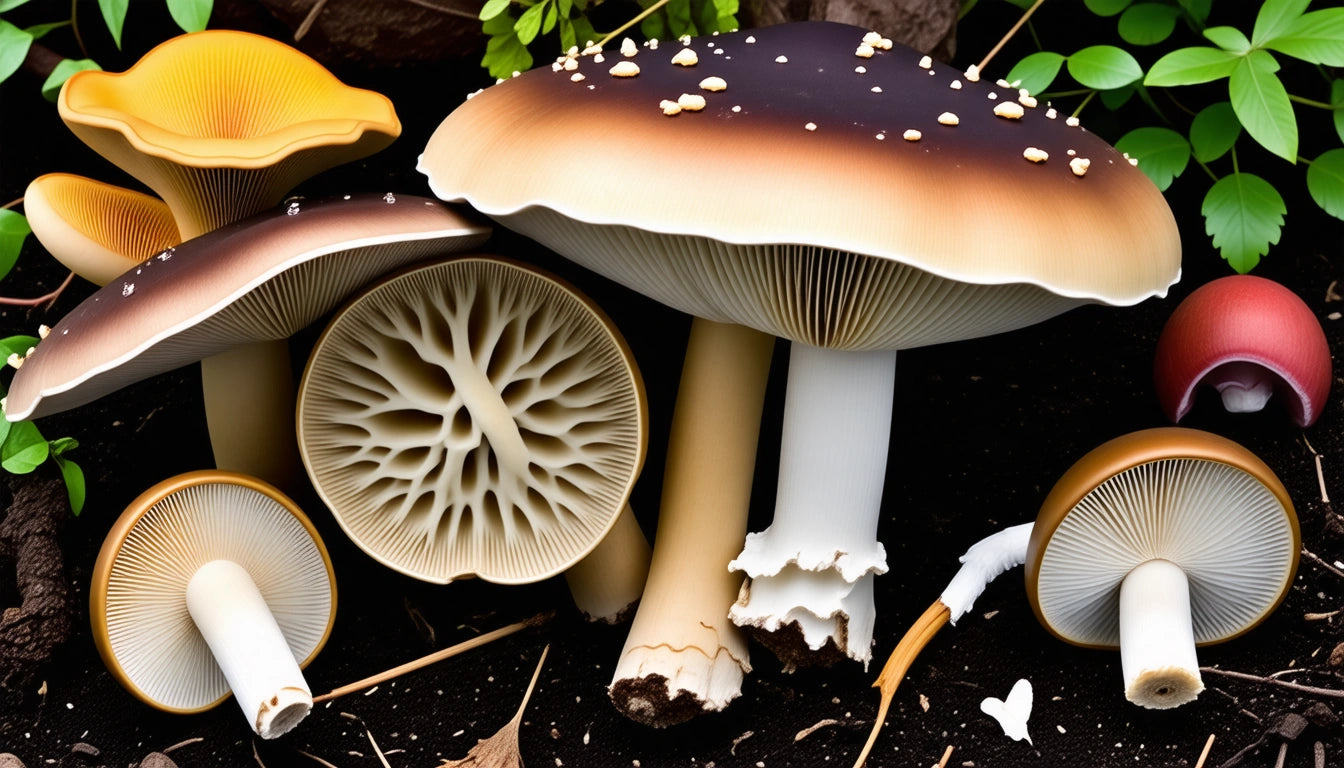The Legal Status of Edibles and Mushrooms in Alaska and Rhode Island
Understanding the legal landscape for cannabis edibles and psychedelic mushrooms can be challenging as regulations vary significantly between states. This guide clarifies whether edibles are legal in Alaska and Rhode Island, along with the current status of mushrooms in these regions, helping consumers and businesses navigate these evolving markets with confidence.
Cannabis Edibles Legal Status in Alaska
Alaska has one of the more progressive stances on cannabis in the United States. Cannabis edibles are fully legal in Alaska for adults 21 and older. The state legalized recreational marijuana in 2014 through Ballot Measure 2, with retail sales beginning in 2016.
Key aspects of Alaska's edible regulations include:
- Legal purchase age of 21+
- Maximum of 5mg THC per serving
- Maximum of 50mg THC per package
- Clear labeling requirements for potency and ingredients
- Child-resistant packaging mandates
Alaska's Marijuana Control Board oversees the regulatory framework, ensuring products meet safety standards. For a broader context on edible legalization across different states, you can refer to this comprehensive guide on edible legality.
Cannabis Edibles Legal Status in Rhode Island
Rhode Island legalized recreational cannabis more recently, with the Rhode Island Cannabis Act taking effect on May 25, 2022. Under this legislation, cannabis edibles are legal in Rhode Island for adults 21 and older.
The state's approach to edibles includes:
- Purchase age restriction of 21+
- Potency limits on individual servings
- Required child-resistant packaging
- Prohibition of products designed to appeal to children
- Clear labeling of THC content and serving size
Rhode Island's cannabis market continues to develop, with the state's Cannabis Control Commission refining regulations. The transition from medical-only to recreational access has expanded availability while maintaining strict safety protocols.
Mushroom Legal Status in Alaska
Unlike cannabis, psychedelic mushrooms remain largely illegal in Alaska. Psilocybin mushrooms are classified as Schedule I controlled substances under both federal law and Alaska state law. Possession, cultivation, and distribution carry potential criminal penalties.
However, some developments worth noting:
- Alaska has not yet joined states like Oregon and Colorado in decriminalizing or legalizing psilocybin
- Some municipalities nationwide have deprioritized enforcement
- Research exemptions exist but are limited to approved scientific studies
For those interested in the broader legal landscape of psychedelic mushrooms across the United States, this state-by-state guide provides detailed information.
Mushroom Legal Status in Rhode Island
Are mushrooms legal in Rhode Island? The answer is no. Psilocybin mushrooms remain illegal in Rhode Island, classified as Schedule I substances. Possession can result in misdemeanor or felony charges depending on quantity.
However, there have been some legislative discussions:
- In 2021, Rhode Island legislators introduced a bill to study the therapeutic potential of psilocybin
- Advocacy groups continue to push for policy reform
- Medical research exemptions exist under strictly controlled conditions
Rhode Island has not yet followed Oregon's model of legalizing supervised psilocybin services or Colorado's decriminalization approach. For more details on mushroom legislation nationwide, refer to this comprehensive mushroom legality guide.
Purchasing and Possession Limits
For cannabis edibles, both Alaska and Rhode Island have established clear limits:
Alaska:
- Adults may purchase and possess up to 1 ounce (28.35 grams) of usable marijuana
- This includes edibles, with the total THC content factored into equivalency calculations
- Home cultivation of up to six plants (three mature) is permitted
Rhode Island:
- Adults may purchase and possess up to 1 ounce (28.35 grams) of cannabis
- Home cultivation of up to six plants (three mature) is allowed
- Medical patients have higher possession limits
When purchasing cannabis products in either state, proper storage is essential. Many consumers utilize specialized storage solutions like mylar bags that maintain freshness while meeting child-resistance requirements.
Compliance Packaging Requirements
Both Alaska and Rhode Island have strict packaging regulations for cannabis edibles:
Alaska Requirements:
- Child-resistant packaging certified to ASTM standards
- Opaque packaging that doesn't show the product inside
- No imagery appealing to children
- Clear labeling of THC content and serving size
- Warning statements about consumption risks
Rhode Island Requirements:
- Child-resistant packaging
- Tamper-evident features
- Opaque or light-resistant materials
- No cartoons, candy resemblance, or child-appealing designs
- Required warning labels and potency information
These packaging requirements serve multiple purposes, including preventing accidental consumption by children, maintaining product freshness, and providing essential consumer information. Additional details about edible regulations can be found in this global edibles legality guide.
Navigating Evolving Regulations
The legal landscape for both cannabis edibles and psychedelic mushrooms continues to evolve rapidly. Several factors will influence future developments in Alaska and Rhode Island:
- Ongoing research into therapeutic applications of both cannabis and psilocybin
- Public opinion shifts regarding decriminalization and legalization
- Federal policy changes that may impact state-level regulations
- Lessons learned from states with more established markets
For businesses and consumers in these states, staying informed about regulatory changes is essential. Industry associations, state cannabis control boards, and legal resources provide valuable updates as legislation evolves. The distinction between state and federal law remains an important consideration, particularly for businesses operating in this space.
As more clinical research emerges on both cannabis and psilocybin compounds, we may see further refinement of regulations based on scientific evidence rather than historical prohibition policies. This science-based approach could lead to more nuanced frameworks that balance public health concerns with access to potentially beneficial substances.











Leave a comment
All comments are moderated before being published.
This site is protected by hCaptcha and the hCaptcha Privacy Policy and Terms of Service apply.